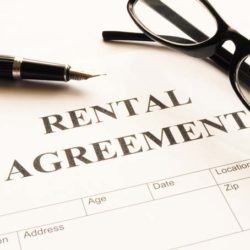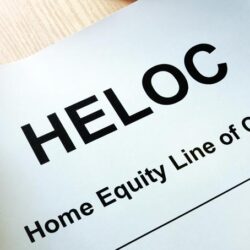This post is part of a series that covers key learnings we’ve had over 15 years of purchasing real estate:
- How We Got Started
- Finding Helpful Connections
- Investing For Cashflow vs Appreciation
- Turnkey Can Add Value But Is Not Completely Turn-Key (current post)
======
I probably sounded pretty balanced and thoughtful when I posted about buying real estate for cash flow AND appreciation both. However, I was much more narrow-mindedly fixated on cash flow alone in the early stages to our detriment (hey, at least I learn from my mistakes).
In the early days, we needed to focus on cash flow because that would be the only way we could afford a property. We bought our first rental with two small kids — our youngest was four. Daycare costs alone were in the five-figures, and the rest of New York City living is not cheap either! We couldn’t afford to speculate on appreciation, and we couldn’t afford to carry a property that didn’t cash flow and pay us back.
Finding Out Of State Rental Properties On Our Own
To find a cash flowing property we had to look outside our immediate area – buying in the tri-state area of New York means exorbitant purchase prices whose monthly carrying costs will never be covered by even the sky high city rents.
Out-of-state investing meant a lot of travel – to canvas neighborhoods, to see properties, to get purchases rent ready, to build up a remote property management team. This takes time and costs money.
Still, we persevered and identified our first six rentals with our own efforts. However, this just didn’t seem scalable, and we still could only find properties that were barely break-even.
How Turnkey Real Estate Investing Works
Enter turnkey real estate investing. With several rentals under our belt, I was adding more and more real estate-related reading to my weekly schedule, and I first learned about turnkey investing on one of the real estate blogs I was following. It sounded like just the solution we needed.
Turnkey real estate investing means that someone else (the turnkey company) identifies the property, renovates the property to get it rent-ready, places a tenant, and manages the tenant for you. You just provide the cash, and the house is owned by you. This is why it’s called turnkey – you turn the key, and the whole rental operation unfolds for you.
There are some variances in turnkey companies Some require cash upfront before renovations. Some only sell the house once a tenant is in place. Some turnkey companies outsource the property management. Some have property management as part of their service.
Some turnkey providers will tell you that you don’t need to visit as they are your ‘boots on the ground’. We do not work with companies that operate this way and have always visited the neighborhoods or properties that were in play, and met face-to-face with the provider and looked at their renovation work firsthand. You have to keep in mind that when you buy turnkey, it is still ‘buyer beware.’ If there are any problems with the property after purchase, it is all on you as the owner, you will have to pay to fix any issues, and that can eat away at your cash flow. It’s another story once you have a trusting relationship with the provider and a couple of properties with them under your belt, then go ahead an buy sight unseen.
We have worked with three turnkey companies to acquire six properties total, and we have worked with all the variations I mention above, and ONLY with providers that welcomed our visit to see the properties and their operations. You definitely get speed with turnkey – we bought three turnkey rentals in our first year of turnkey real estate investing. It took us three years to amass three rentals when we did it ourselves.
However, turnkey is not really turn-key – i.e., it’s not all hands-off, 100% passive
First of all, there are significant start-up costs. We looked at five companies in three cities before settling on the two companies we started with. We did multiple visits with some of these companies, lots of calls and emails back and forth, lots of reference checking and analyzing of deals. We both had full-time day jobs (and still two kids). You will put in time when you invest in turnkey real estate, though you will spend it on different activities.
Secondly, there are not so insignificant ongoing costs. We had to switch property management companies and go through a costly eviction and renovation with one property. Sure, we had a team on-the-ground during this time but they needed to called almost every day. When we didn’t do that, things weren’t taken care of, and problems went unsolved. Even the turnkey company with better property management doesn’t have strong property management – we still have to stay on top of them. No one will care more about your investment than you will!
Finally, there is the opportunity cost of what we might have done with the money we put in turnkey real estate. Our turnkey real estate properties do cash flow nicely – much more nicely than the properties we identified ourselves. But you pay for the turnkey service. You buy at market rate so you don’t get a sweet deal on price so that there is additional equity in the house as soon you close on it. You are in lower-income neighborhoods, predominately comprised of renters not owners, so expect less price appreciation.
Would we have been better off continuing the slow route and handpicking our own deals, buying at below-market prices to capture extra equity at purchase, and focusing on our first priority neighborhoods, where you have a mix of renters and owners and market indicators that point to strong appreciation?
Cash Flow From Our Turnkey Properties Is Helpful
We’re happy with the turnkey rental properties we already have. But now that their cash flow helps us better balance our earlier properties, we’re back to DIY investing. Turnkey isn’t turn-key – you’ll put in the time and cost anyway. I would rather spend my time and money scouting, buying well, and going after both cash flow and appreciation.
We bounced back quickly with a duplex purchase that we were able to get below market value. I’m expecting we can refinance the duplex this year and pull out enough to replace everything we put in and still pay off one of our mortgages. That feels more like our kind of deal.
How about you? Do you invest turnkey or DIY?
======
This post is part of a series that covers key learnings we’ve had over 15 years of purchasing real estate:
- How We Got Started
- Finding Helpful Connections
- Investing For Cashflow vs Appreciation
- Turnkey Can Add Value But Is Not Completely Turn-Key (current post)


 We are Scott and Caroline, 50-somethings who spent the first 20+ years of our adult lives in New York City, working traditional careers and raising 2 kids. We left full-time work in our mid-40’s for location-independent, part-time consulting projects and real estate investing, in order to create a more flexible and travel-centric lifestyle.
We are Scott and Caroline, 50-somethings who spent the first 20+ years of our adult lives in New York City, working traditional careers and raising 2 kids. We left full-time work in our mid-40’s for location-independent, part-time consulting projects and real estate investing, in order to create a more flexible and travel-centric lifestyle.  Financial independence and early retirement is not something we originally focused on, but over time realized it was possible. Our free report,
Financial independence and early retirement is not something we originally focused on, but over time realized it was possible. Our free report, 








I am seeking for a Turnkey investment Opportunity to put my funds (i have cash). Please i want to know if there is any available project.
Anyone with any available project please email me on: [email protected] Thanks
Thanks for stopping by Mike! The best way to connect with turnkey opportunities is to join https://www.biggerpockets.com and search their forums.